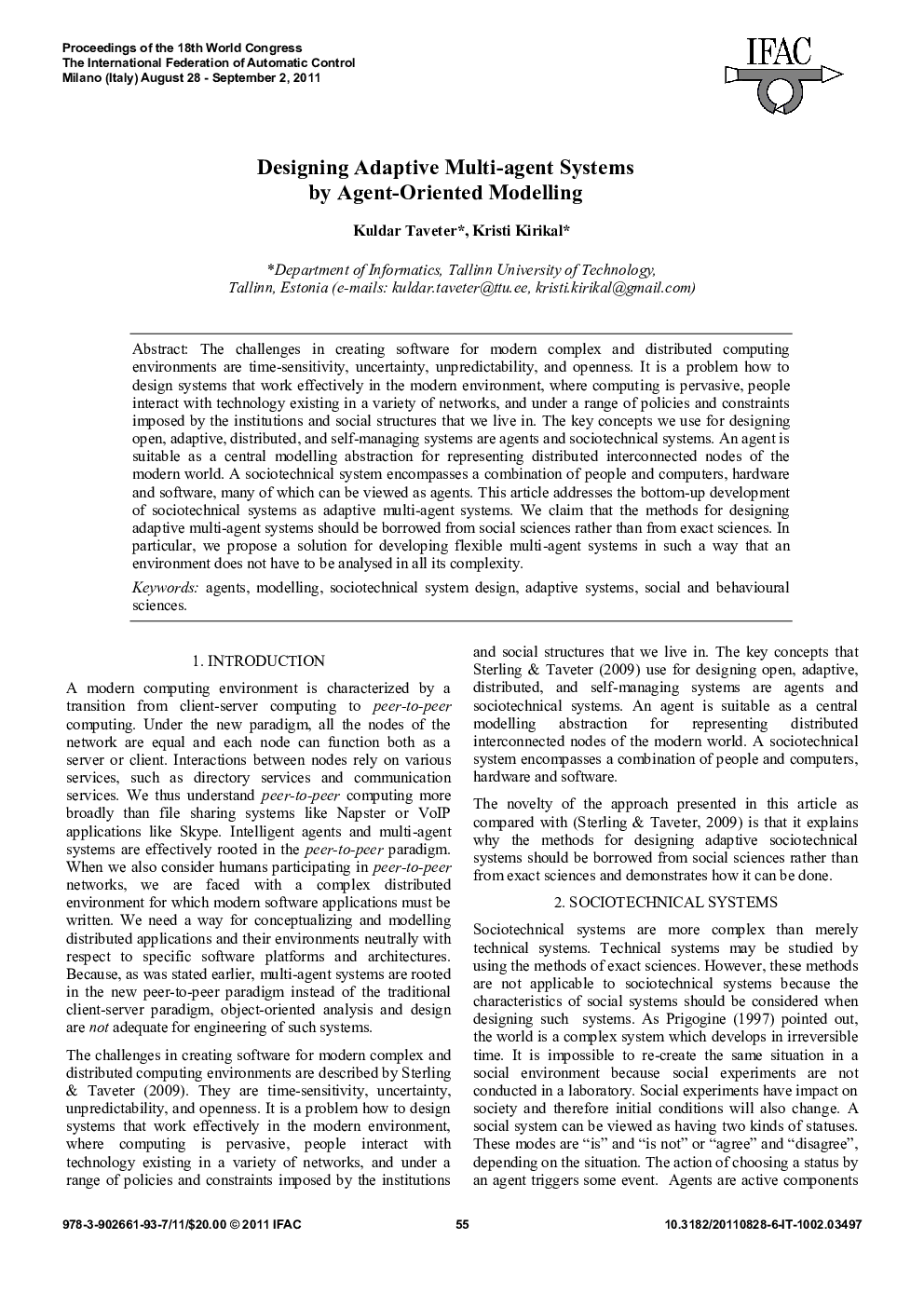| Article ID | Journal | Published Year | Pages | File Type |
|---|---|---|---|---|
| 718661 | IFAC Proceedings Volumes | 2011 | 5 Pages |
The challenges in creating software for modern complex and distributed computing environments are time-sensitivity, uncertainty, unpredictability, and openness. It is a problem how to design systems that work effectively in the modern environment, where computing is pervasive, people interact with technology existing in a variety of networks, and under a range of policies and constraints imposed by the institutions and social structures that we live in. The key concepts we use for designing open, adaptive, distributed, and self-managing systems are agents and sociotechnical systems. An agent is suitable as a central modelling abstraction for representing distributed interconnected nodes of the modern world. A sociotechnical system encompasses a combination of people and computers, hardware and software, many of which can be viewed as agents. This article addresses the bottom-up development of sociotechnical systems as adaptive multi-agent systems. We claim that the methods for designing adaptive multi-agent systems should be borrowed from social sciences rather than from exact sciences. In particular, we propose a solution for developing flexible multi-agent systems in such a way that an environment does not have to be analysed in all its complexity.
